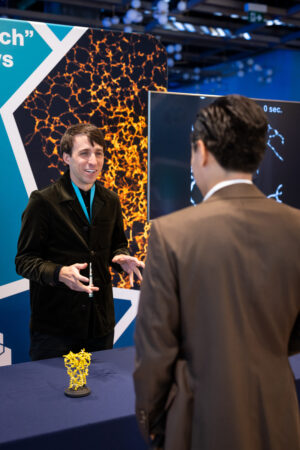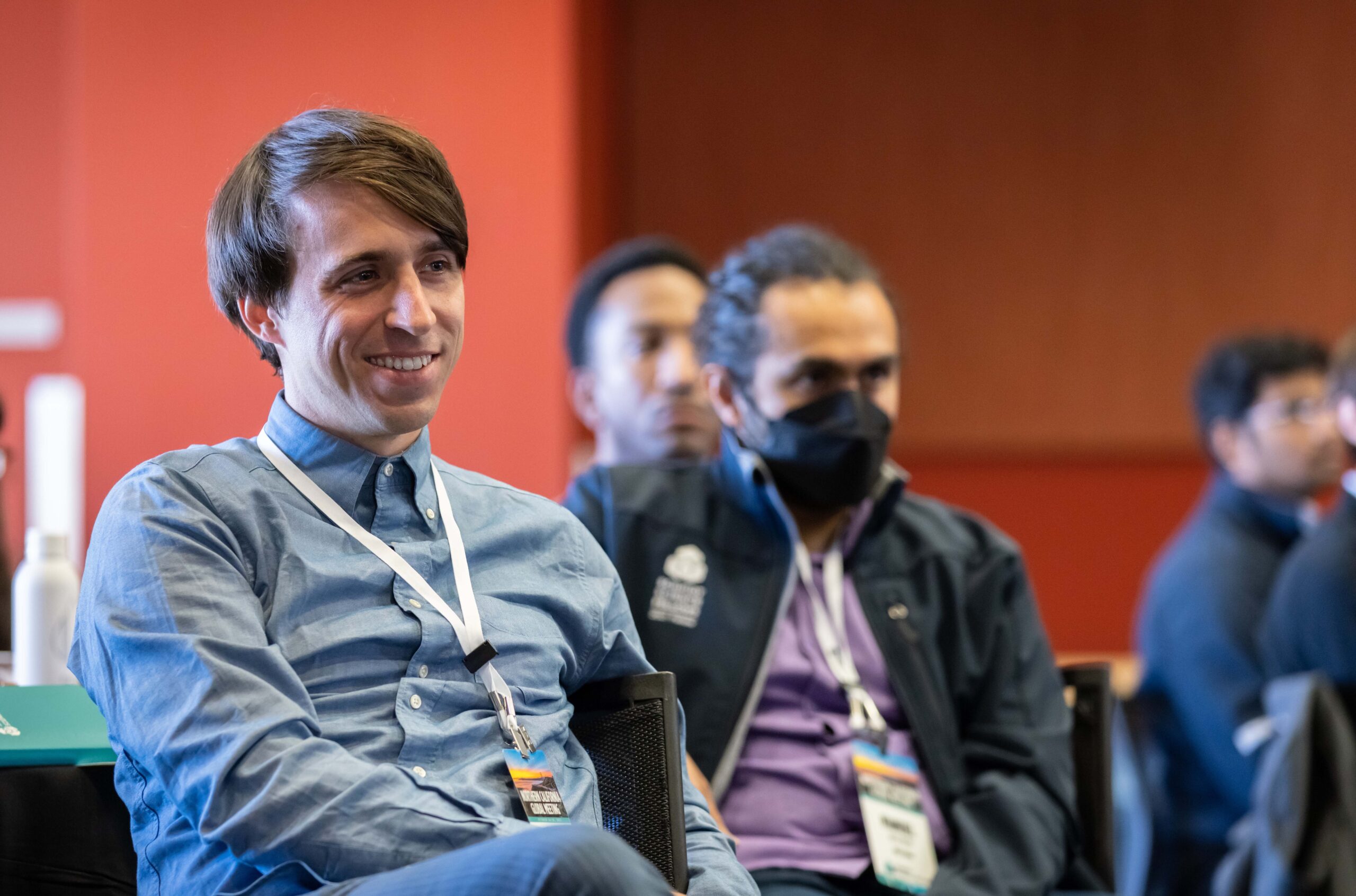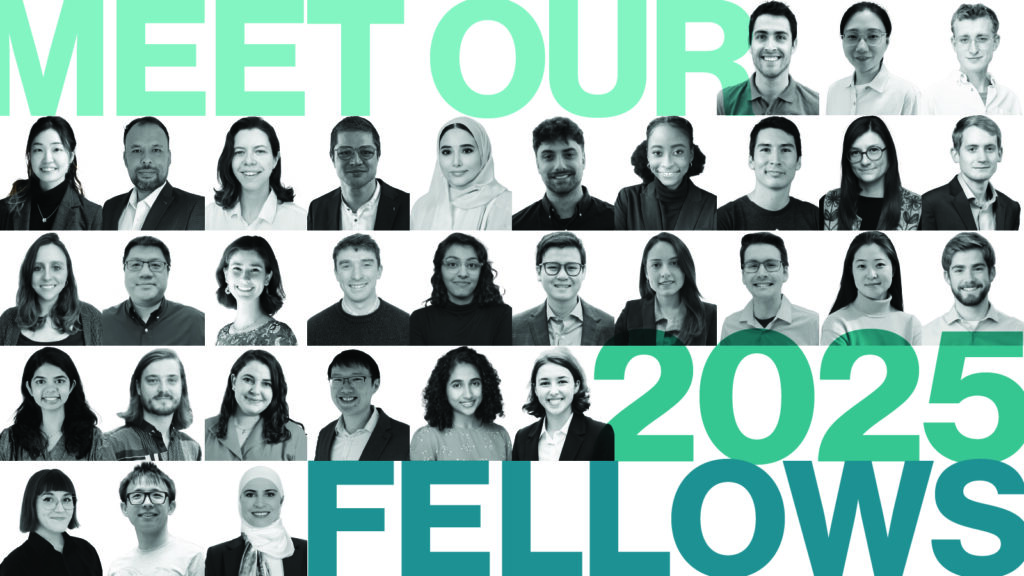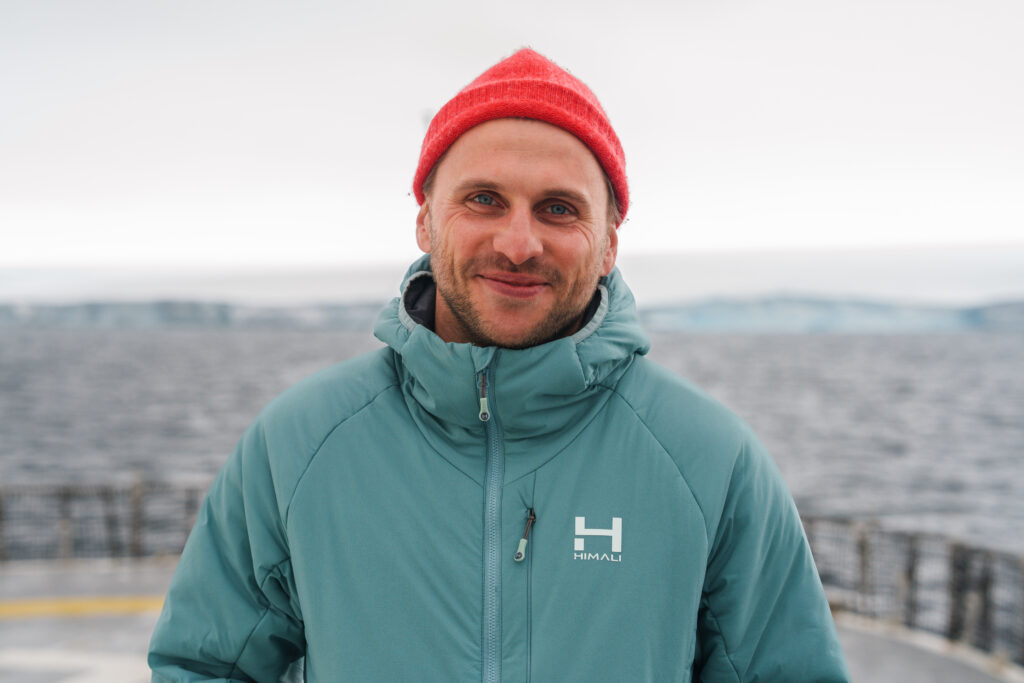Schmidt Science Fellow Ethan Perets is passionate about forging closer links between philosophy and science. And his vision is to see philosophers embedded in every lab.
Ethan has been a discipline-hopping trailblazer since he was in high school. His studies ultimately led to a PhD in Chemistry at Yale, but as a teen he got the opportunity to attend classes in philosophy at his local university.
“That perpetuated my belief in the importance of philosophy as well as in science and having that philosophical perspective in whatever I was going to do next,” explains Ethan.
Now he’s written a new book chapter exploring how philosophy is an under-appreciated lens for tackling a whole range of scientific challenges.
Thanks to his early experience, he has always rejected the prescribed way of thinking, that students must choose one ‘tribe’ or the other, the arts and humanities or science.
And as a researcher he has not limited himself to one discipline. As a 2022 Schmidt Science Fellow, he pivoted from physical sciences to life sciences.
Based at UT Southwestern Medical Center, he is now investigating brain aging and neurodegeneration, and the role of the immune system in these processes.

As science advances, it uncovers ever more fundamental questions that may benefit from a different perspective.
Philosophers can help scientists to critically assess and clarify concepts and challenge scientific assumptions. Brain aging is a perfect case in point, says Ethan. What exactly is aging? Should we think of aging as a cause or an effect of pathologies, or as a normal biological process?
The definition of aging can affect which hypothesis a scientist tests; which data they deem relevant to it; which conclusions are drawn about the results; and how those conclusions are used to address the challenges facing people and society, whether through social policies or treatments for age-associated diseases.
One of many research initiatives to which this could be pertinent is the Biomarkers of Aging Consortium which is identifying biomarkers of aging: effectively defining aging at the molecular level.
But, as he outlines in his book chapter, this is really just the tip of the iceberg.
“Most people, when they think of how a philosopher is going to help scientists, it’s about how it’s going to make the concept sharper. I think that’s missing the full breadth of ways that philosophers can help scientists to do the work that they already want to do to an even deeper degree,” he explains.
Today’s scientists don’t just perform experiments, after all. They have many different facets to their job, from seeking funding to peer review and lab management to communicating their work with the public.
They are required to be researchers, entrepreneurs, accountants, experts, activists, policy consultants, and public personalities. Ethan believes that philosophers could help scientists carry out these professional responsibilities to an even higher standard.
For instance, if we embed science in the history of knowledge and thought, argues Ethan, philosophy can tell us whether a new scientific idea is viable, or likely to repeat past problems.
One example of this is the 18th century theory of Lamarckian inheritance. This is the idea that living organisms can pass on to their offspring physical characteristics that the parent organism gained during its lifetime through use or disuse.
Lamarckian inheritance was long ago dismissed by the scientific community as Darwinian evolutionary genetics theory overtook it. But more recently we’ve discovered epigenetics, which outlines the molecular mechanisms by which our life experiences and environment can alter the DNA we pass on to our children.
Neo-Lamarckian frameworks for understanding genetic inheritance remain highly controversial among scientists. Philosophers could help scientists relate new theoretical frameworks and controversies to historical scientific arguments, which sometimes reemerge in unfamiliar guises.
From splitting the atom to 3D printing, all technology that comes from scientific discovery can be used for both beneficial and malign purposes. Philosophers can provide frameworks for scientists to evaluate, predict and communicate with policy makers and the public about the risks and possibilities of new technologies.
What is more, it could deepen understanding of the ethical implications of recent major advances like AI, big data and gene editing.
An example of this in practice is at the Kavli Center for Ethics, Science and the Public. Founded by Jennifer Doudna, who pioneered the CRISPR gene editing technique, the Center is directed by philosopher Jodi Halpern. (Both of whom have contributed to our Science Leadership Program).
“We’re moving towards greater and greater interdisciplinarity and transdisciplinarity. That’s something that is currently desired and I think has many advantages.”
Doudna works alongside Halpern to better understand and prepare for the future ethical challenges presented by our new-found ability to readily edit the genomes of living organisms: anything from genetically modifying livestock to having more muscle tissue for us to eat, to the spectre of ‘designer babies’.
Ethan’s ambition is to see more philosophers embedded within laboratories as full-time members of staff. Ultimately, he hopes to establish a network of philosophers in science.
But first, there are barriers to address. One of the biggest of these, he says, is scientists’ skepticism about what a philosopher could offer in terms of helping scientists do better science.
Another barrier is systemic change and getting buy-in from scientific institutions. For example, at a research university with a philosophy department and a chemistry department, who would pay to embed a philosopher in a scientific department? One day, Ethan would like to see these divisions broken down.
“We’re moving towards greater and greater interdisciplinarity and transdisciplinarity,” he says.
“That’s something that is currently desired and I think has many advantages. I think that if we can contribute to having greater dialogue between the humanities and sciences, that will raise both the value that society ascribes to humanities and sciences, as well as the value that people working in those two areas ascribe to the other.”



